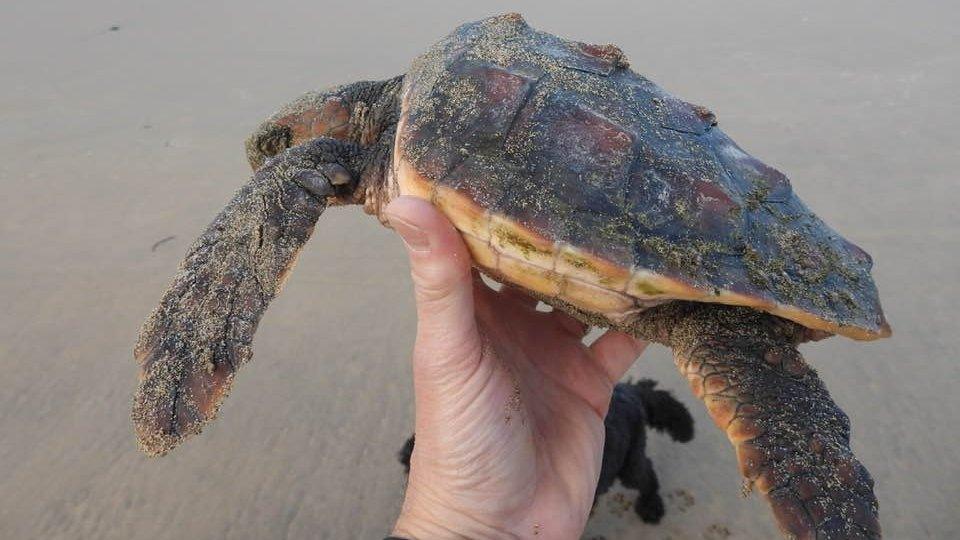Rescued loggerhead turtles are on the mend
- Published
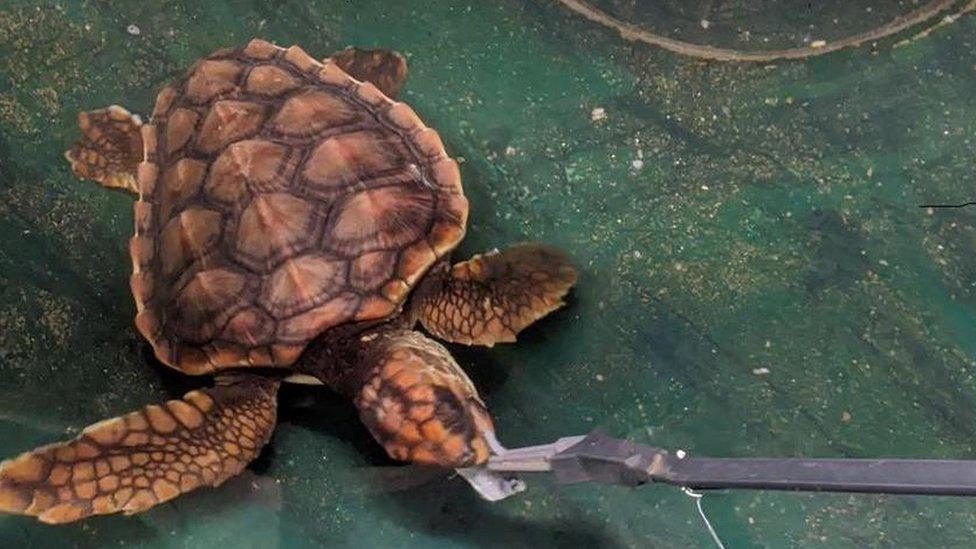
Three sea turtles are receving rehabilitation treatment after being rescued
Three turtles found stranded on Cornish beaches are making progress after receiving specialist care from aquarium staff.
Blue Reef Aquarium in Newquay took in three loggerhead sea turtles after they were "taken off course by storms".
While two of the rescues are "strong candidates" for release into the wild, the third is still "much weaker".
Steve Matchett, general manager, said the turtles had arrived "dehydrated and starving" earlier this year.
He added: "Two seem to be strong candidates for a release back into the wild based on their good progress.
"The smallest one is still not at the stage we hoped it would be by now.
"It will take some more time to see if it is going to make it but it has recently started to show some positive signs."
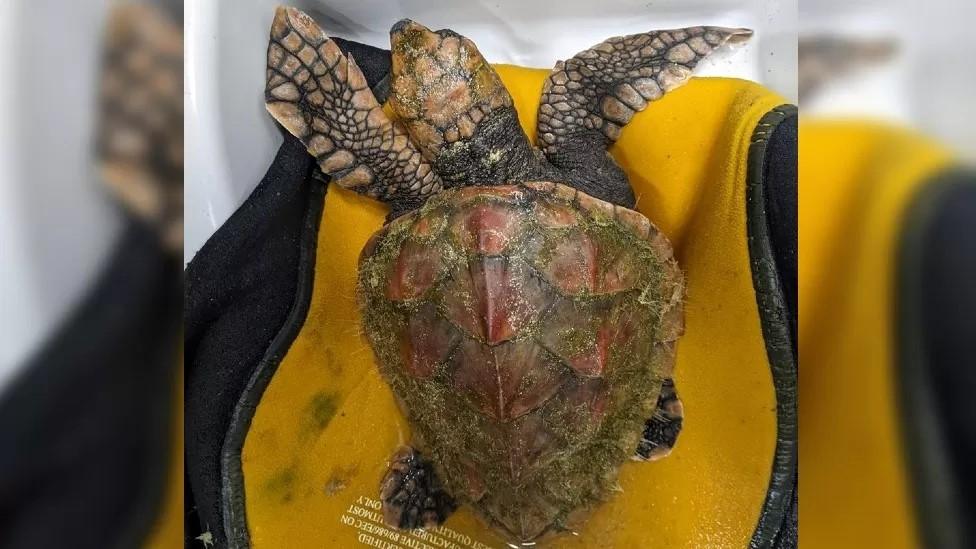
Two of the turtles could soon be ready for release
Hailing from warmer waters, loggerhead turtles can be taken off course by storms when following warm Atlantic currents.
Two turtles were rescued from Perranporth beach near Newquay, with a third found at Widemouth Bay in Bude.
The first two turtles, who have been named Jason and Gordon by staff, have now started to feed themselves and swim.
Jason is currently in a tank with a divider, with plans to move Gordon into the same one.
The third "much weaker" turtle is still being syringe-fed with "liquidised fish" and monitored by the team, the aquarium said.
Lara Heaney the aquarium's assistant curator said: "These are sick animals that are under treatment so we won't be putting them on display."
'Turtle fix'
She said visitors could get their "turtle fix" by visiting resident rescue turtle Omiros or their group of terrapins.
A turtle found stranded in the UK should not be returned to the sea as the waters are too cold, the aquarium said.
Instead, the aquarium advises it be wrapped in a towel soaked in seawater, leaving its nostrils uncovered.
It should be placed on its belly, at the same temperature it was found.
If inactive, the public are advised to "raise its back end" at 30 degrees to drain its lungs.
This advice does not apply to leatherback turtles which can be "carefully re-floated" if uninjured.

Follow BBC News South West on Twitter, external, Facebook, external and Instagram, external. Send your story ideas to spotlight@bbc.co.uk.
- Published11 February 2023
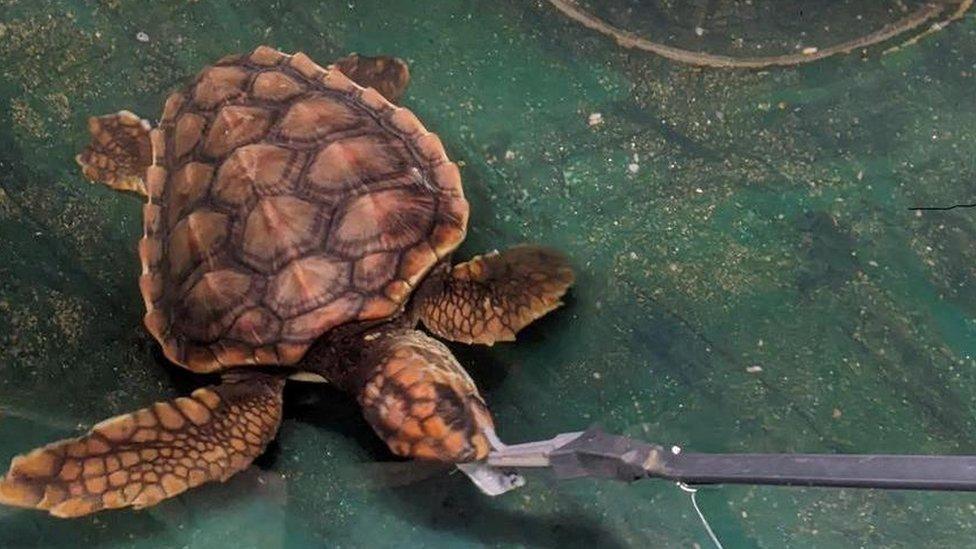
- Published15 February 2023
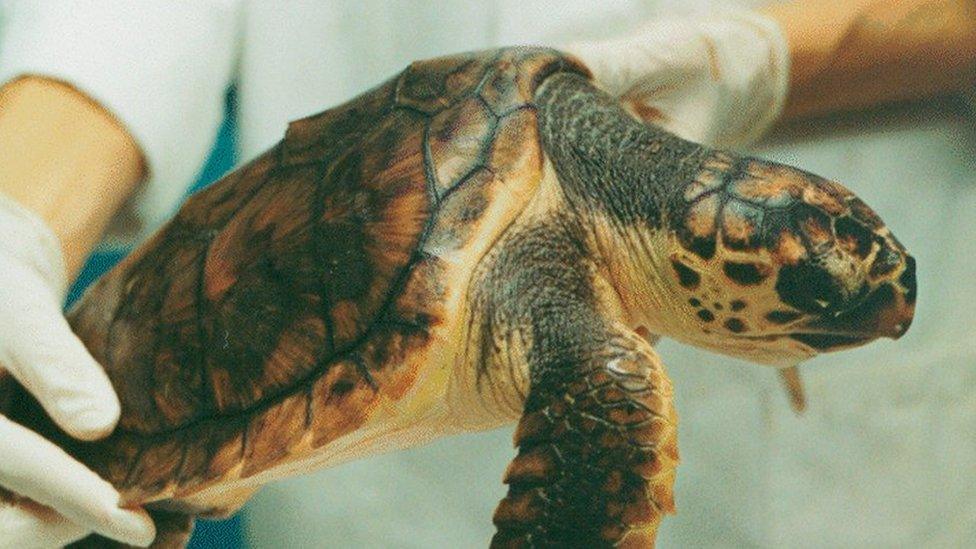
- Published13 January 2023
